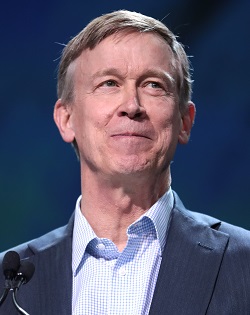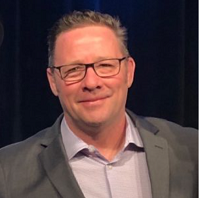
Fast, affordable Internet access for all.

Just as the BEAD program becomes a major driving force in the ongoing broadband-ification of America, hundreds of local network builders, operators, thought-leaders, and policy-makers will descend on Denver, Colorado for Mountain Connect 2023 early next month.
Themed this year as “Collaborate, Integrate, Innovate,” the agenda is packed with plenty of BEAD-centered panels but also offers a buffet of other focused forums that will cover emerging technologies, local network case studies, and larger community development concerns.
Spots for the conference, which will be held August 7-9 at the Denver Sheraton, are filling up fast. But, would-be attendees can still register here.
As with the previous eight annual Mountain Connect conferences, this year’s three-day conference in the Mile High City will bring together a veritable who’s-who of people working in the trenches of a national effort to bring high-speed Internet access to the tens of millions unserved and underserved households and businesses across the U.S.
Among the conference participants will be representatives from 15 state broadband offices, which accounts for more than $15 of the $42.5 billion in BEAD funds that will be allocated by states in the form of competitive state grants.

Headlining an all-star assembly of broadband-for-all advocates will be U.S. Sen. John Hickenlooper – a leading voice in the U.S. Senate for federal investments in support of expanded broadband access.
Day 1
The first day of the conference is the most lightly scheduled day with morning and afternoon registration, a golf tournament at the Green Valley Ranch Golf Course in Denver, an optional Broadband 101 class led by David Reed, a scholar-in-residence with the University of Colorado; with the day capped off by an evening Welcome Reception.
Day 2
The second day will get into the meat of the conference with opening remarks from Mountain Connect CEO Jeff Gavlinski and Calix VP of Marketing Scott Neuman. That will be followed by a panel moderated by the President of Public-Private Partnerships for Ready.net, Inc. Scott Woods on how the leading state broadband offices have harnessed the power of data, information, and technology to address the digital divide in local communities.
Here’s a peek at a few Day 2 panels:
“What’s Next With BEAD?” – a panel of experts discuss how well-equipped and ready states are (or not) for the funds, what decisions state offices need to make, and what the grant challenge process should look like. It's a discussion that will be led by Steve Coran, chairman of Lerman Senter’s Broadband, Spectrum, Utilities, and Communications Infrastructure practice group; and will include Nick Alexander, Senior Policy Advisor in NTIA’s Office of Internet Connectivity and Growth.

Later that morning, another panel will address an emerging trend in broadband. That panel – “Peaks and Valleys of Public Private Partnerships” – will explore the benefits of service provider and public agency partnerships, legal challenges, ownership, as well as revenue sharing opportunities; and will have New Mexico's Broadband Director Kelly Schlegel as a panelist.
When ILSR caught up with Mountain Connect CEO Jeff Gavlinksi this week, he noted how interest in public private partnerships seems to be growing and may very well be “like a magical formula (for many communities) – if the public retains ownership of the assets long term.”
One of the most anticipated parts of Day 2, however, will be a discussion moderated by Broadband Breakfast Editor and Publisher Drew Clerk that features Sen. Hickenlooper and Colorado’s Broadband Office Executive Director Brandy Reitter, both of whom will take “A Deep Dive Into Colorado’s BEAD Strategy to Get 99% of Colorado Connected By 2027.”
Another high-profile presentation will be given later that afternoon in a session that will examine BEAD and the far-reaching implications of the funding mechanisms and policies involved. That talk – “Broadband After BEAD: Planning For The Long Term” – will feature noted author and Professor Christopher Ali, who is expected to zero-in on whether the “once-in-a-generation” funding program will be enough to connect everyone. He is also expected to pull the covers off the 800-pound “overbuilding” boogeyman in the room, which the presentation description notes “has become the third rail of broadband policy” and overlooks “the vital importance of competition amongst providers.”
Day 3
The third and final day of the conference promises to pack as much of a punch as the previous day with a forward-looking lineup. The morning keynote will be given by Gary Bolton, President of the Fiber Broadband Association. His talk – “The Future of the Internet” – will cover “societal issues and how they will be addressed and transformed with the latest tech innovations that are quickly emerging.”

Other panels that day will dive into the financing of network construction, one on “Why Rural Electric Co-Ops Should be Dominating the Rural Broadband Market,” and another led by ILSR's own Christopher Mitchell, who will moderate a panel on the “best practices and pitfalls to avoid” among municipal and local network operators titled “So You Want To Build and Operate a New Broadband Network.”
“Technology Neutral” With An Eye on The Future
While Mountain Connect remains “technology neutral” and prominently features discussions on wireless, public WiFi and cellular technologies, Jeff said he thought it was still important to keep in mind that as states and communities “are thinking about building-out with BEAD, we need to have an eye toward the future.”

"In the not-so-distant future, advanced technology applications will have a profound impact on the networks we are going to build from the BEAD funding. We want to ensure everyone has equitable access to these applications, to expedite adoption for all," he said, adding that “the digital divide gets worse going forward for those left behind, particularly as new technology is integrated, especially as it relates to quality video content.”
Ultimately though, the aim of the conference, Jeff said is “to help folks who need help – and generally that’s economically challenged communities and rural communities. And by help I mean: providing the right kind of resources, networking with peers, and sharing best practices."
See the full agenda here. And you can find the roster of speakers here.
Inline image of U.S. Sen. John Hickenlooper courtesy of Wikimedia Commons, Attribution-ShareAlike 2.0 Generic (CC BY-SA 2.0)
Inline image of team fist bump courtesy of rawpixel, CC0 1.0 Universal (CC0 1.0)
Public Domain Dedication
Inline of Downtown Denver at night courtesy of Stockvault, CC0 1.0 Universal (CC0 1.0)
Public Domain Dedication
